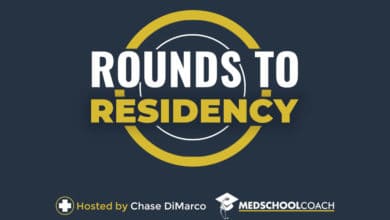Chase DiMarco talks to Dr. Alen Juginovic, a medical doctor and postdoc at Harvard Medical School, Department of Neurobiology. He is also the author of “Introduction to Sleep Medicine,” which focuses on the physiology and pathophysiology of sleep, sleep disorders, and the circadian rhythm. They talk about sleep medicine, communicating science to the general public, and keeping up with scientific literature.
- [01:09] Challenges Facing Residents in Sleep Medicine
- [06:02] Introduction to Sleep Medicine
- [07:14] The Hot Science Balloon Project
- [09:35] Communicating Science to the General Public
- [13:10] Why Experts Should Explain Their Science to the Layperson
- [14:30] The Role of the Science Experts in Developing Public Policy
- [15:55] How to Keep up with New Scientific Literature
- [19:10] Why Facts Don’t Change Our Minds
- [23:40] Fake Science and the Knowledge Crisis
- [26:08] Strategies and Tools for Communicating Science to the General Public
- [28:21] Tips for Pursuing a Career Medicine
Challenges Facing Residents in Sleep Medicine
The past decade has witnessed an increase in our medical understanding of the brain and sleep process. Dr. Juginovic explains that we now know more about the brain and neurotransmitters than ever imagined. However, despite these groundbreaking strides in neurology, several fundamental questions about sleep remain unanswered. For example, neurologists can easily diagnose many brain-related issues but find it hard to treat them. This is primarily due to the field’s overdependence on in-laboratory sleep studies. So, as a medical student with the vision of one day pursuing sleep medicine, brace yourself for lots of research-based studies.
Introduction to Sleep Medicine
Sleep medicine is a specialty dedicated to the research, diagnosis, and therapy of sleep disorders and disturbances. The average human spends at least 30% of their life sleeping, yet we still don’t know why we sleep. Dr. Juginovic reveals that a third of the American population suffers from some sort of sleep disorder. Still, today’s society has little regard for sleep. For the most part, adults tolerate the fact that they need sleep to survive, which is a dangerous and unsustainable attitude. He further explains that sleep is a highly complex state arising from multiple brain interactions. Consequently, lack of sleep or highly disturbed sleep is associated with many mental illnesses.
Most medical residents work 24 to 36-hour shifts on minimal sleep. According to Dr. Juginovic, sleep deprivation can lead to poor health and potentially affect the quality of patient care. So, as a resident, it’s understandable that your program demands these excessively long working hours. But, whenever an opportunity presents itself, take that much-needed nap.
Communicating Science to the General Public
Scientists are tasked with sharing new information with other scientists and publishing findings in public spaces. But why should scientists explain their science to the everyday person? First, scientists are the most knowledgeable source of information and possess the credibility to counter misinformation cluttering the public space. Second, people don’t always understand scientific trends and discoveries. Unfortunately, most industry professionals are not trained to communicate effectively with the general public. Dr. Juginovic believes that the declining trust in mainstream media makes it crucial for scientists to communicate with the public.
Links and Resources
The Hot Science Balloon website
Dr. Juginovic’s Twitter Handle
Sign up for a Free Coaching session with Chase DiMarco, sponsored by Prospective Doctor! You can also join the Med Mnemonist Mastermind FB Group today and learn more about study methods, memory techniques, and MORE! Do check out Read This Before Medical School. Like our FreeMedEd Facebook page and find our Medical Micro Course, Blog posts, and Podcasts at FreeMedEd.org! Feel free to Email any Questions or Comments.
